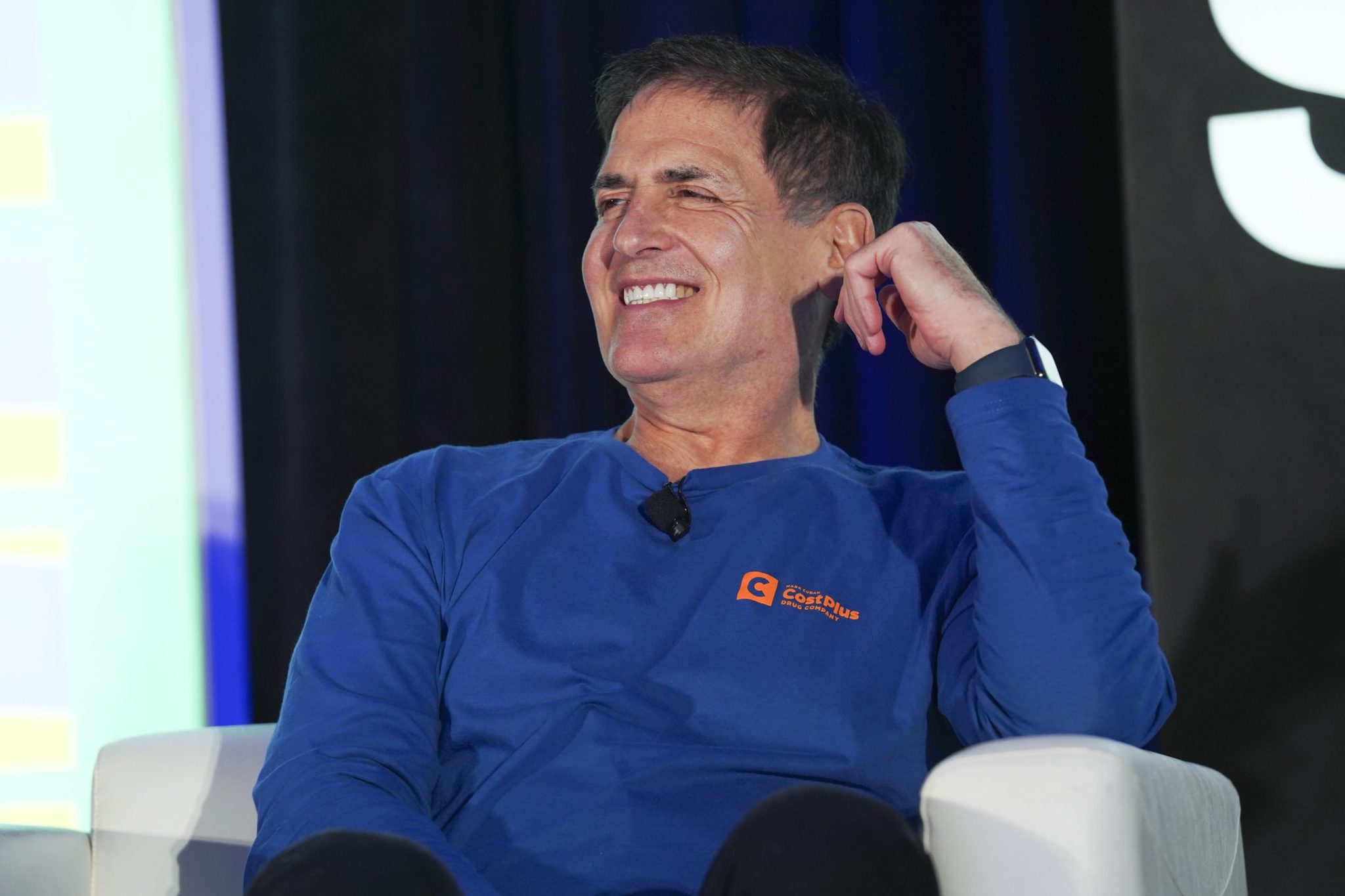
Before you knew him as an investor on “Shark Tank,” the owner of the NBA Dallas Mavericks, or just one of the richest people in the world, Mark Cuban was hustling in humble—and sometimes sketchy—ways.
To pay his way through junior year of college at Indiana University in the early 1980s, Cuban set up a “chain letter” in his dorm, he told The San Francisco Standard’s “Life in Seven Songs” podcast. He started by approaching one person and asked them to give him $100, starting the Ponzi scheme or “scam” as he called it.
Cuban told that person “I’m going to take $50 of that. And here’s a list of 10 names. We’re going to send 50 bucks to whatever dorm room that this person at the top of the list is. Then we’re going to take their name off the list and put your name at the bottom. So we’ll make it a $50 chain letter. And as everybody else does that, your name moves up the list until you’re at the top. And as we grow the chain letter, hopefully you’ll get more money than you put out.”
Sounds kind of like social capital, right?
“No, no. It was basically a scam,” Cuban, 66, said as he chuckled. “I made sure my friends all got their money back. And so I got up to the top of the list. And it was amazing, because I’d go to [my mailbox] and there’d be envelopes with 50 bucks from here, 50 bucks from there, and that’s how I paid for my junior year of college.”
That type of cash meant a lot at the time for Cuban, who came from humble beginnings, growing up in a working-class family in a suburb of Pittsburgh. He said his dad, who worked in car upholstery, would occasionally throw him a $20 bill, but he was always searching for ways to make money. That started during childhood when he asked his dad for a new pair of basketball shoes: His dad said when he had a job, he could buy whatever he wanted.
That instance launched Cuban into a long career of entrepreneurship, starting with selling—of all things—trash bags. His father’s friend had tons of boxes of trash bags to unload, and told Cuban he could sell them. With that, Cuban went door-to-door around his neighborhood selling the home essential.
“I would go door to door to be like, ‘Hi, my name is Mark. Do you use trash bags?” Cuban reflected. “I killed it.”
Cuban’s journey to billionaire status
After college, Cuban made his move to Dallas—not knowing one day he’d be the face of the city’s NBA team. There, he worked as a software salesman and lived in what he called a “s–thole” with five other guys.
“It was nasty as can be,” Cuban said. “I slept on the floor, and if somebody was out of town, I got a bed. I didn’t have my own closet, didn’t have my own drawers. Nothing.”
During his time there, Cuban learned everything he could about computers and software—even if that meant sitting down and reading manuals. While working as a salesman, he had the opportunity to make a $1,500 commission, which would have helped him move out of the “Hell Hotel” that he and his five roommates fondly called their apartment. But when he went to pick up the check, his boss fired him right on the spot. That moment inspired Cuban to start his first company called MicroSolutions writing software for PCs. He sold that company for $6 million in 1990.
For a while after that, Cuban bought a “lifetime pass on American Airlines, partied like a rock star, and just traveled,” he said.
“I was young, single and crazy, and there were no limits,” Cuban said. “I just wanted to have a beer with as many people as I possibly could, experience as many things as I possibly could.”
Cuban’s entrepreneurial career soared. In the mid-1990s, Cuban and two of his friends, Cameron Christopher Jaeb and Todd Wagner, founded internet radio company Audionet.com, which was later renamed to Broadcast.com. They sold that company to Yahoo in 1999 for $5.7 billion, during the height of the dot-com bubble, cementing Cuban’s status as a billionaire.
In the following decades, Cuban focused heavily on business investments, starring on “Shark Tank” for start-up companies, and eventually purchased a majority stake in the Dallas Mavericks in 2000. Recently, Cuban announced he’d be parting ways with “Shark Tank” after its latest season—and in late 2023, he sold his majority stake in the Mavericks for $3.5 billion. Cuban is currently worth an estimated $7.79 billion, according to Bloomberg.
The primary reason Cuban decided to step away from the Mavericks? To protect his three kids.
“Running a professional sports team is always good when you’re winning. It’s great,” Cuban said. “But when you’re having a bad season, and [my] kids are on social media, I just didn’t want them to put up with everything.”
Now, Cuban is on to new—and very different—ventures. He launched Mark Cuban Cost Plus Drugs in 2022 with a mission to eliminate the middleman in the pharmaceutical industry. Cuban diagnoses this as being the major culprit behind high drug prices.
“Disrupting an industry that everybody hates, that’s fun,” Cuban told Wired.

